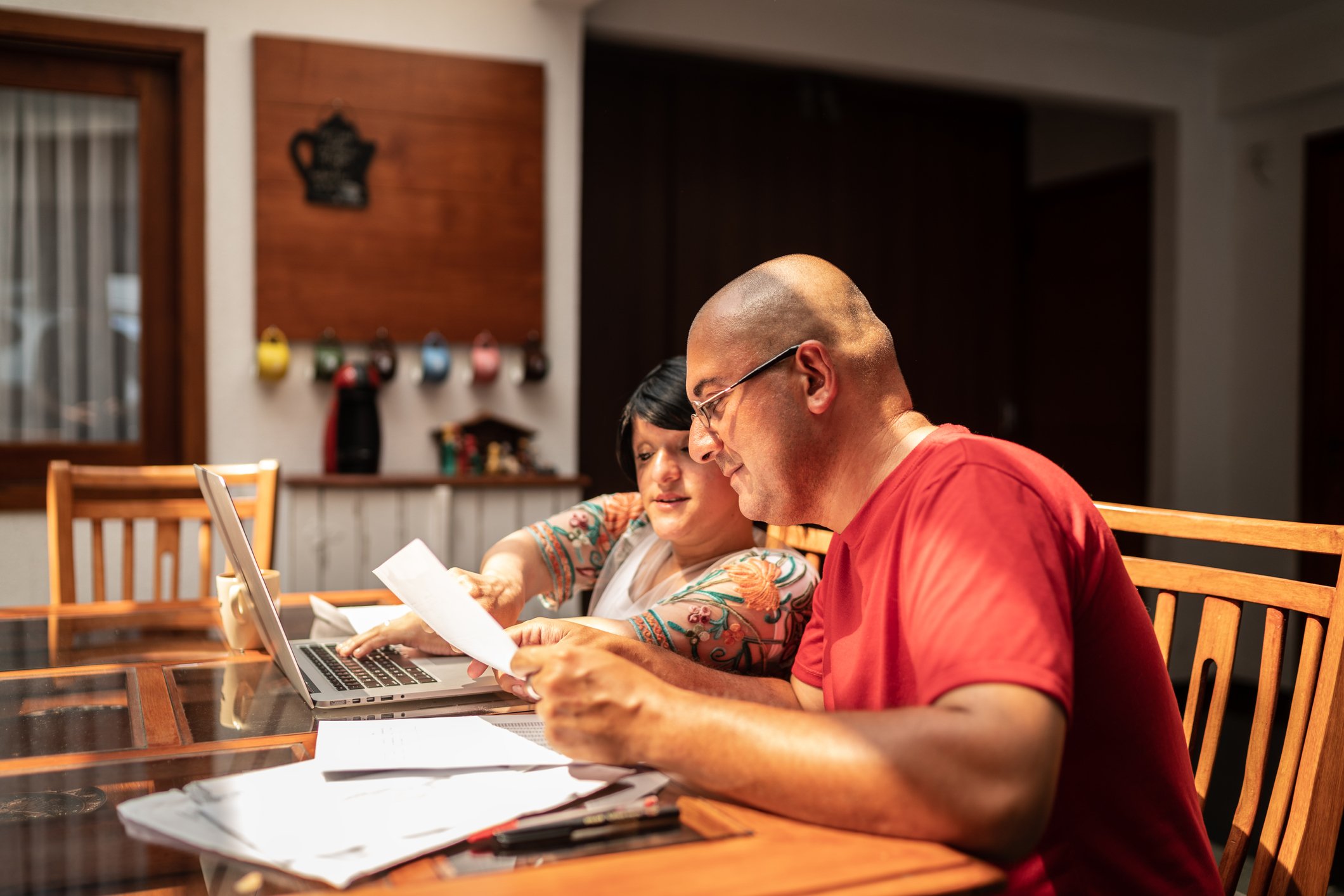As President Eisenhower famously said, "In preparing for battle I have always found that plans are useless, but planning is indispensable." While he was directly referring to war planning, the sentiment holds true to everyday life and finances as well. No matter how good you are at planning for what you want to have happen, what actually does happen will probably end up different. Being able to adapt your plans as reality unfolds is key to your ultimate success.
When it comes to personal finance, the key to your adaptability comes from planning to live on less than you earn and socking away the extra in savings. While that savings probably won't provide the highest rate of return in your overall asset allocation strategy, it can be an incredibly important part of keeping a small problem from becoming a big one. With that in mind, here are three expensive things that just might happen to you that you're probably not planning for.

Image source: Getty Images.
No. 1: The double whammy that comes from being disabled even temporarily
Even if you have medical insurance to help cover your direct costs of caring for your illness or injury, how well are you prepared for all the indirect but related costs of it? For instance, if you can't work at all or as much as you had been working because of your illness or injury, can you get by with the lower income until you recover? If you find yourself unable to do ordinary but necessary activities like shop for groceries or mow your lawn, can you afford the higher costs of hiring those services out?
It's surprisingly common among people in the prime of their working years. According to Cornell University's Disability Statistics, around 10.6% of Americans between the ages of 21 and 64 reported a disability in 2017. Perhaps more alarmingly, of those people reporting a disability, only 37.3% reported being employed that year. What that means is that a serious health issue that knocks you out of commission, even if only temporarily, can have a big impact on not only your costs but your income, too.
No. 2: Retiring earlier than you expected

Image source: Getty Images.
If you haven't reached your Social Security full retirement age yet, you need to be somewhere between 66 and 67 years old before you can hope to claim the full amount Social Security promises to pay you. In addition, if you're expecting to rely on Medicare to help with your healthcare costs in retirement, you'll need to be at least 65 to qualify for that coverage under most circumstances. Even if you've got a plan that lets you retire in that 65 to 67 age range, are you ready to leave work earlier than that?
Chances are amazingly good that you'll actually retire earlier than that, whether you want to or not. Indeed, the average age at retirement for people currently retired is just under 60 years old. In addition, the most common age to collect Social Security is 62, the earliest age you can collect retirement benefits and the age at which your monthly retirement benefits are the smallest.
Importantly, there's a significant penalty of up to $1 for every $2 you earn above $18,240 within the year if you're working while collecting Social Security and below your full retirement age. That suggests that most of those people collecting at age 62 are doing so either because they really need the money or because they really are not expecting to go back to work. That should give you reason to pause if your current plans involve working to your full retirement age or beyond.
No. 3: "Life Happens" emergencies in general

Image source: Getty Images.
Even if you can get through life without being affected by the substantial risks of disability or earlier-than-expected retirement, "life happens" to all of us. Cars break down. Roofs need replacing. Water heaters spring leaks. Furnaces crack heat exchangers. Short-term job losses take place, even when the overall economy is booming. People fall on the ice and break bones. There are countless ways that unpleasant surprises happen, yet around 60% of Americans can't cover even a $1,000 emergency.
That makes this one perhaps the scariest item on this list. If you're living paycheck to paycheck to the point where you can't cover one moderately sized unexpected expense, then when that unfortunate surprise happens to you, it becomes a double-whammy. After all, not only would you be forced to cover that unexpected cost, but also the interest payment on the credit card, cash advance, or personal loan you'd be forced to borrow to pay the bill. That makes the hole that much tougher to climb out of.
Issues like these can be addressed
While you may not be able to predict whether any one of these three expensive emergencies happen to you, you can be pretty well certain that something will come out of the blue and surprise you. With an overall financial plan that covers your current needs and your future goals while setting aside a little bit for the unexpected, you can increase your ability to adapt as reality gets in the way of your plans. That improves your chances of winding up OK, even when the unexpected comes your way.





